Ayn Rand’s iconic novel, “Atlas Shrugged,” was published on October 10, 1957. There’s a lot of talk today about the need for economic dignity, but the only path to dignity and purpose in life is to earn it yourself. It’s not free, no government can give it to you. No empty promise from a politician can ever give your life meaning. This is just one of the many important themes of “Atlas Shrugged,” a book that has sold over 7MM copies and is considered the second most influential book in history, right behind the Bible. Who is John Galt? You are.
Subscribe on YouTube
Free the People publishes opinion-based articles from contributing writers. The opinions and ideas expressed do not always reflect the opinions and ideas that Free the People endorses. We believe in free speech, and in providing a platform for open dialog. Feel free to leave a comment!
Matt Kibbe
Matt Kibbe is President at Free the People, an educational foundation using video storytelling to turn on the next generation to the values of personal liberty and peaceful cooperation. He is also co-founder and partner at Fight the Power Productions, a video and strategic communications company. Kibbe is the host of BlazeTV’s Kibbe on Liberty, a popular podcast that insists that you think for yourself.
Dubbed “the scribe” by the New York Daily News, Kibbe is the author three books, most recently the #2 New York Times bestseller Don’t Hurt People and Don’t Take Their Stuff: A Libertarian Manifesto.
He was senior advisor for a Rand Paul Presidential Super PAC in 2016, and later co-founded AlternativePAC to promote libertarian values.
In 2004 Kibbe founded FreedomWorks, a national grassroots advocacy organization, and served as President until his departure in 2015. Steve Forbes said: “Kibbe has been to FreedomWorks what Steve Jobs was to Apple.”
An economist by training, Kibbe did graduate work at George Mason University and received his B.A. from Grove City College. He serves at the whim of his awesome wife Terry, and their three objectivist cats, Roark, Ragnar and Rearden. Kibbe is a fanatical DeadHead, drinker of craft beer and whisky, and collector of obscure books on Austrian economics.
View Full Bio
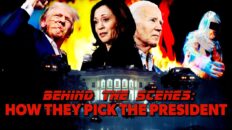
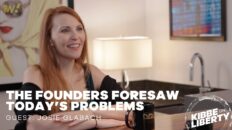


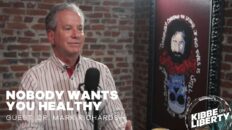
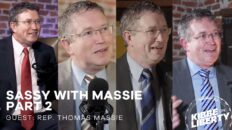
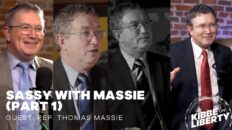
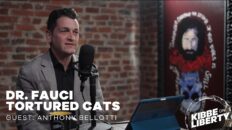
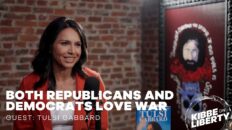
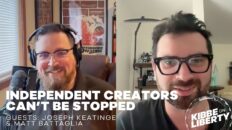

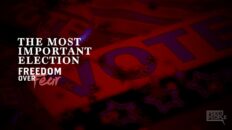
Happy 62nd birthday, Atlas Shrugged.
The world needs this message now more than ever.
Conservatives tend to be outcome more oriented (because it is tangible and wellbeing is not measurable), where Progressives tend to be more focused on the emotional wellbeing of the individual, with outcomes as a distant second. “Dignity” is another word to express this intuitive idea. The agitation we see for wellbeing over outcomes comes from a passionate place, not a reasoned one. Rather than being able to point to data, they must resort to slandering their opponents as egoistic and immoral to gain ground against their adversaries. This has been amazingly successful but has produced a social bubble, a volatile one.
The key to this conundrum combines economic, philosophic, evolutionary and social theories. The concepts of labor, value, property, identity and ethical happiness are implicit in each other in human beings and their social systems. If we disconnect them, we create more dangerous bubbles, both for the individual and for society. Each human must produce value and exchange it with others. This value informs self-esteem as it situates us among our peers. The value of many exchanges becomes property, the tangible representation of value to both the producer and their peers, and again mirroring back into the self-esteem and wellbeing of its producer. The more value we produce, the greater our social value, the greater our property, and the greater our wellbeing. These are all intimately connected and cannot be separated without damaging the individual we seek to help. This is why redistribution consistently fails, and in fact continues to inflate the class-warfare bubble. Neither dignity nor outcomes are served, but this is ignored and it is rhetorically labelled social justice, a means of “balancing the scales,” when actually it has perpetuated social disparity. Labor cannot be disconnected from value, nor can value be disconnected from identity, wellbeing, and ethical happiness.